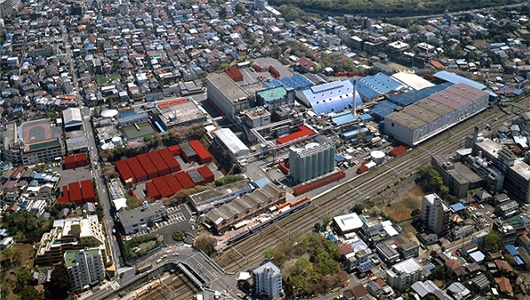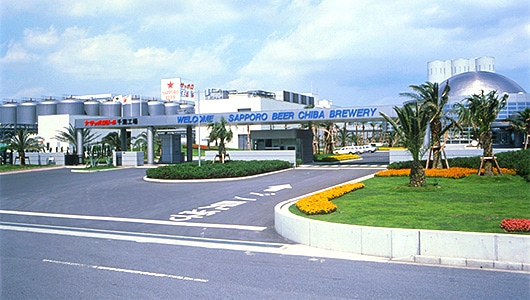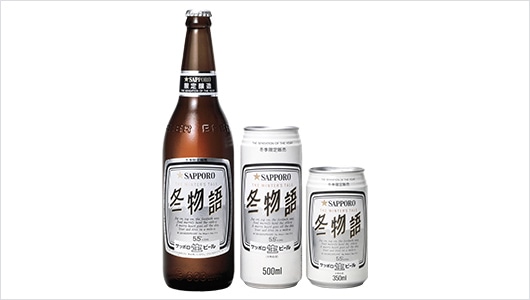A century of history

Being centrally located in an urban area, the Yebisu brewery faced some limits to how much it could expand to cope with growing demand for beer, so it struggled to find a solution to logistics and environmental concerns. Starting in 1980, debates raged within the company as to the possibility of relocating the brewery, as well as redeveloping a 99,000 square meter lot. The idea was to make use of a vast former plot of land that the company had in its portfolio. In October of 1985, the company announced the closing of the old Yebisu brewery and reopening in Chiba. The Yebisu Brewery closed in June 1988. 100 years after Yebisu Beer began brewing in the area in 1889, the plant closed down operations and moved to its new location.
The Chiba Brewery is completed

In July of 1986, a plot in Funabashi-shi, Chiba Prefecture was selected for the new brewery out of its proximity to Tokyo, logistical and power supply advantages, and ease of operations in terms of effluent and other issues. It is located within the Keiyo Foods Industrial Complex in Takase-cho, Funabashi. The new plant was named the Chiba Brewery, and construction completed in June of 1988. In May of 1990, the second phase of construction completed. This offered production capacity of 270,000kl (approximately 70M cans at 350ml each), making it our largest plant. The Chiba Brewery, located in the bay area, has become a popular tourist destination for offering views of the ocean while patrons sip their beer.
The Winter’s Tale, a new winter exclusive

The result was Sapporo The Winter’s Tale, a beer that proposed the idea of enjoying a seasonally appropriate, rich beer in wintertime. It went on sale for the first time in October 1988. While beer had now been adopted as something for year-round consumption, summer use was reaching a peak, with consumption on the rise in the fall through winter months.
The company launched the “Yuki Monogatari” ahead of other brands in order to cement its share of the market for winter products. The name comes from the Japanese for Shakespeare’s “The Winter’s Tale.” It was unusual to see a product on the market styled only in Japanese characters, and it came out in October, upending the industry logic that new products should be released in early spring or summer. This new first, a winter beer, was greeted with much enthusiasm.